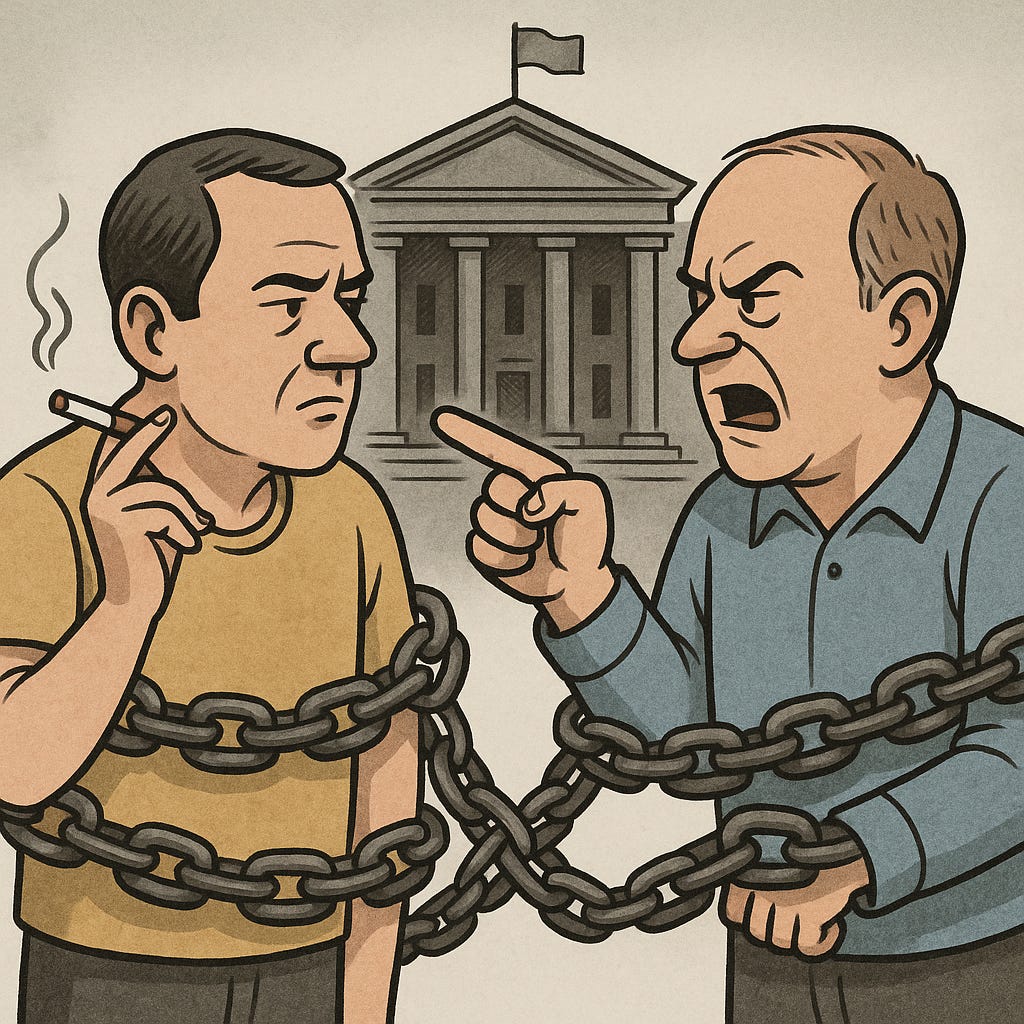The Libertarian Trap of Statism
In a statist system, the libertarian non-coercion rule backfires: your smoking becomes my business, since I’m forced to pay for it. My meddling looks like “self-defense.” It’s like babies strapped to tanks — the state makes me shoot at you. The fix: only enforce the rules we’d all sign anyway.
——
In a statist system, the libertarian non-coercion principle gets twisted. Since the state forces us into collective obligations — for example, paying for one another’s healthcare — your smoking habit suddenly becomes my business. If I stick to a naive application of the non-coercion principle, I can tell myself that trying to stop you from smoking isn’t me aggressing against you but me defending myself against the state’s aggression. In this way, the principle justifies everyone meddling in everyone else’s life. It’s like when an enemy straps babies to the front of its tanks: if I fire, the deaths aren’t on me but on those who engineered the no-win situation. The state is the real culprit, having entangled us in ways that make neighbor-against-neighbor coercion look like self-defense.
The libertarian way out is to accept that some coercion is unavoidable, but to bind it as tightly as possible. The rule is simple: the state should enforce only those contracts that nearly everyone would voluntarily sign in a free society anyway — the bare-bones agreements that make coordination possible and daily life predictable. That includes common carriage rules, which guarantee that infrastructure providers can’t arbitrarily deny access, and non-discrimination in public accommodations, so you don’t have to worry whether today’s café or social platform excludes people for some trivial trait or political view. These are minimal, neutral, abuse-resistant rules. They’re not alien statist impositions at all, but the closest approximation to what a truly free society would have built for itself.
In short: only enforce the rules we’d all sign anyway.


